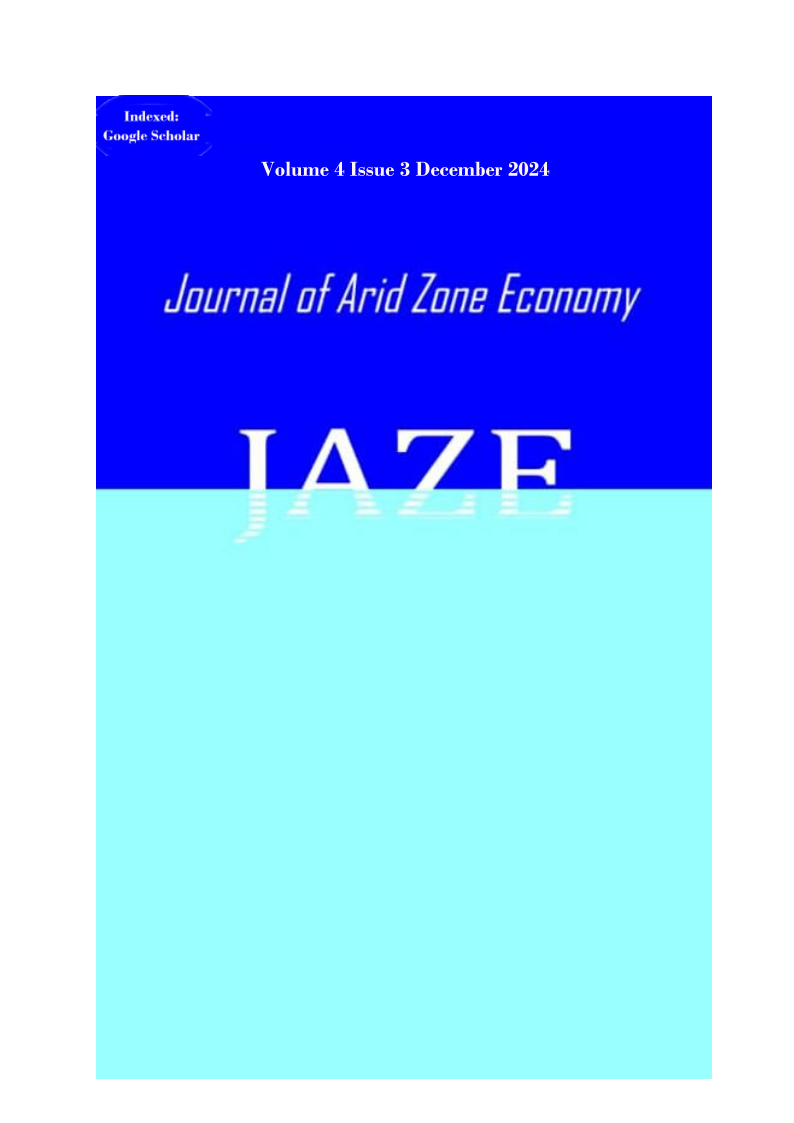Assessment of the Impact of Government Health Expenditure on Economic Growth in Nigeria
Keywords:
Government Health, Expenditure, Economic Growth, Ordinary Least SquareAbstract
This study assesses the impact of government health expenditure on
economic growth in Nigeria from 1992 to 2021 using ordinary least
square (OLS). The study uses secondary data sourced from National
Bureau of Statistics (NBS) and Central Bank of Nigeria (CBN). Findings
from the study revealed that government current and capital health
expenditure have significant impact on economic growth and it also
revealed that poor quality machinery, unfinished health project and
corrupt practices might be blamed for poor health and decrease in
standard health care and general wellness of the population. Therefore,
the study recommended that the government should put in place the
facilities needed for people to use healthcare and to maximize well-being
to improve health outcomes, it has been determined that recurring
expenses significantly impede Nigeria's economic expansion. As a result,
this highlights the necessity for the government to enhance recurring
expenditure patterns by emphasizing human development through an
appropriate expenditure-switching strategy, since capital health
expenditure has a positive correlation with economic growth, budgetary
allocation for capital health expenditure needs to be increased to ensure
that essentials are available and that access to health services is growing.

Downloads
Published
Issue
Section
License
Copyright (c) 2024 Journal of Arid Zone Economy

This work is licensed under a Creative Commons Attribution 4.0 International License.

